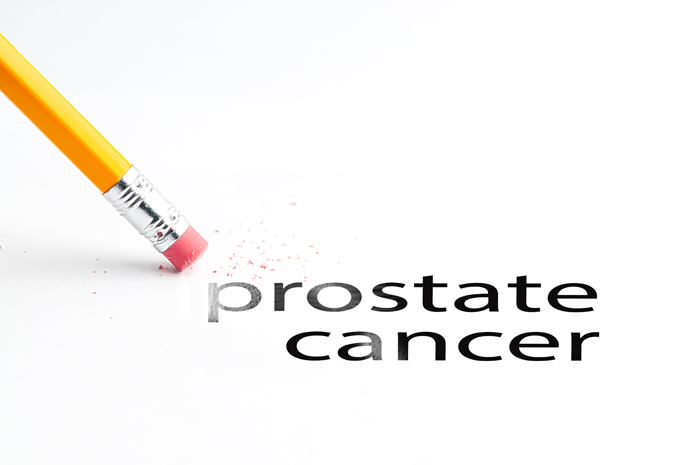Prostate Cancer Treatment & Diagnostics in Karol Bagh, Delhi
Prostate Cancer
Prostate cancer is a specific type of cancer that develops in the prostate gland. Men's prostate gland generates seminal fluid, which nourishes and transports semen.
Prostate cancer develops slowly and is limited to the prostate gland, posing minimal harm. While some forms of prostate cancer are slowly growing and may need little or no treatment, others are aggressive and rapidly spreading.
Prostate cancer detected early is most likely to be effectively treated. If you are looking for prostate cancer treatment, prostate cancer doctors in Delhi can offer the best options.
Prostate Cancer doctors in Delhi provide both curative and palliative treatment.

What are the symptoms?
- Urination difficulty
- Less force in urine stream
- Urine contains blood
- Presence of blood in semen
- Bone pain
- Weight loss without effort
What causes prostate cancer?
The actual cause of prostate cancer, like other cancer forms, is difficult to identify. Multiple variables, including genetics and exposure to environmental pollutants such as specific chemicals or radiation, may play a role in many cases.
Cancer cells grow due to mutations in your DNA. As a consequence of these mutations, prostate cells begin to develop uncontrollably and improperly. When abnormal or cancerous cells continue to divide and expand, a tumor forms.
When do you need to see a doctor?
It's a good idea to consult a prostate Cancer specialist in Delhi if you have prostate cancer symptoms, even if they are mild. As a rule, the National Cancer Institute recommends that men aged between 30 and 40 years contact a doctor promptly if they have prostate cancer symptoms. While
these symptoms do not always show prostate cancer, non-cancerous prostate issues usually occur in men beyond 50.
Symptoms such as bloody discharge or severe pain may require prompt screening for cancer.
Regular cancer screenings are also crucial, especially if there is a family history of the illness. Men with brothers or fathers with prostate cancer are up to three times more likely to acquire the disease. Your risk may also be higher if your family has a history of breast cancer. If suspicious symptoms develop, sharing this information with your doctor might help you get timely testing.
Request an appointment at Apollo Spectra Hospitals, Karol Bagh, New Delhi.
Call 1860 500 2244 to book an appointment.
What are the risk factors?
- Aging. Prostate cancer risks increase as people become older. After 50, it is most common.
- History of the family. Furthermore, if you have a family history of genes related to breast cancer, you may be more likely to get prostate cancer.
- Obesity. Although studies have shown mixed results, persons with obesity may be more at risk of prostate cancer than persons with healthy weight. In persons with obesity, cancer is more aggressive and returns more often after initial treatment.
What are the possible complications?
- Spread of cancer. Prostate cancer may spread to adjacent organs such as your bladder or move via the bloodstream or lymphatic system into your bones or other organs. Prostate bone cancer can cause discomfort and bone fracture. It is still possible to treat and manage prostate cancer after it has spread to other areas of the body, but it is unlikely to be cured.
- Incontinence. During its treatment, prostate cancer may cause urine incontinence. The treatment of incontinence relies on the kind, severity and possibility of improvement over time. Medicines, catheters and surgery might be included in the treatment options.
- Erectile dysfunction. Erectile dysfunction may be caused by or during the treatment of prostate cancer, including surgery, radiation, or hormone therapies. Medications, vacuum devices for erection and surgery treatment options for erectile dysfunction.
How is prostate cancer treated?
Treatment includes monitoring prostate cancer by conducting regular tests of prostate-specific antigen (PSA) and digital rectal exam (DRE) and prostate biopsies.
A prostatectomy is a surgery in which the prostate is removed. The prostate and surrounding tissue get removed via radical prostatectomy.
To destroy cancer cells, high-energy (similar to X-rays) radiation is also used. Two forms of radiation treatment exist—
- External treatment for radiation - An external machine directs radiation to the cancer cells.
- Internal treatment of radiation (brachytherapy) - Radioactive seeds or pellets are surgically implanted into or around the tumor to kill cancer cells.
Conclusion
Prostate cancer has a lengthy preclinical stage during which it is detected by screening. Additionally, randomized trials show that early prostatectomy is superior to watchful waiting in men younger than 65 years of age. Thus, prostate cancer possesses all of the characteristics of a disease that may benefit from early detection and treatment.
Almost 100% of men diagnosed in the early stage become disease-free after five years with technological progress in healthcare.
As soon as it is detected, the management of prostate cancer may not need surgery, chemo and radiation therapy. Both aim at the precise reduction of suffering and pain during the treatment sessions.
No, prostate cancer develops in older people.
Our Top Specialities
NOTICE BOARD
CONTACT US
CONTACT US
 Book Appointment
Book Appointment


.svg)
.svg)
.svg)
.svg)








